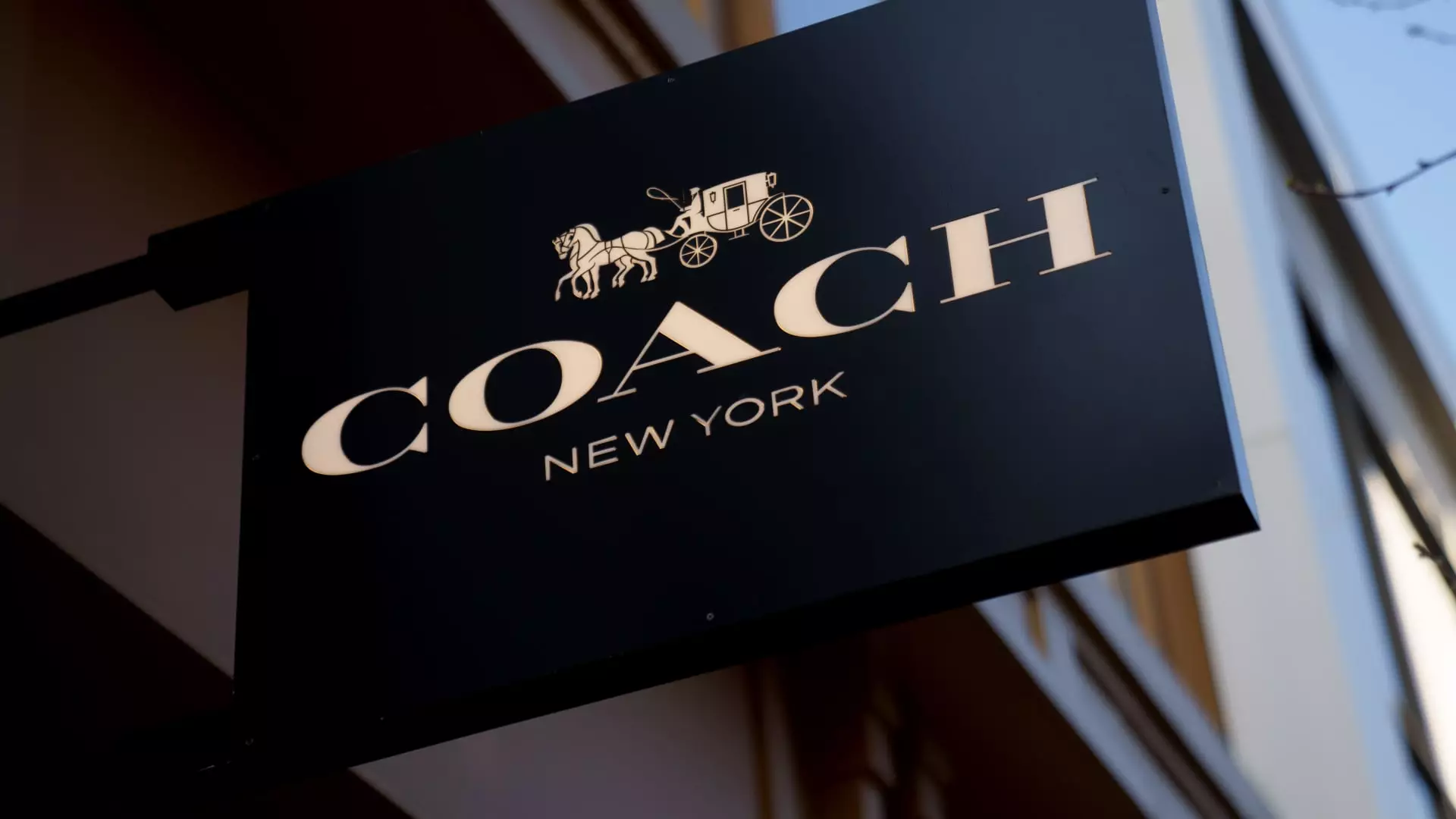Tapestry Inc., the parent company of well-known brands such as Kate Spade and Coach, has recently become the focal point of investor interest, with its share price soaring an impressive 120% within a mere six months. This dramatic rise can be attributed to the company’s resilient performance in the second quarter, where it reported adjusted earnings and revenue that exceeded Wall Street expectations. During a recent appearance on CNBC’s “Power Lunch,” Sylvia Jablonski, the CEO and co-founder of Defiance ETFs, revealed her decision to take profits amidst this surge. Notably, the stock experienced a remarkable 13% increase in one day alone, reaching an all-time high.
However, beneath this surface allure lies a more nuanced analysis. While Tapestry has managed to increase revenue, Jablonski pointed out that over the last five years, the company’s compounded annual growth rate has been a modest 2.6%. This stagnation raises questions about the sustainability of its current upward trajectory. The strategy of aggressively cutting prices to stimulate sales growth may not be in the best long-term interest of the brand’s image or financial health. Investors should tread carefully, as the allure of a booming stock can often overshadow underlying weaknesses in growth strategy.
In stark contrast to Tapestry’s ascent, Roblox has recently faced troubling challenges reflected in an 11% drop in its share price after disclosing fourth-quarter results that did not meet market expectations. Jablonski’s insights highlight a critical concern: the company is grappling with declining daily user engagement, a metric that significantly impacts a gaming company’s attractiveness. Despite reporting $1.36 billion in bookings, this fell short of analysts’ projections, suggesting that the excitement surrounding Roblox may be waning.
Jablonski’s reluctance to purchase shares during this downturn reflects a broader sentiment among investors who recognize the importance of user engagement in assessing gaming stocks. As daily active users fell to 85.3 million, below the anticipated 88.2 million, doubts about Roblox’s growth trajectory have surfaced. Historically, gaming companies thrive on maintaining an enthusiastic and engaged user base, and without this, the future looks uncertain. For potential investors, the message is clear: caution is warranted until a more substantial turnaround is evidenced in engagement metrics.
Meanwhile, Oracle stands as a counterpoint to both Tapestry and Roblox, with Jablonski openly endorsing the tech giant as a formidable player in the artificial intelligence landscape. She described Oracle as “the cool kid on the block,” attributing its recent 50% stock price increase over the past year to its robust positioning in the AI infrastructure sector. Jablonski emphasized that Oracle’s strategic developments, particularly within its cloud and infrastructure capabilities, are essential for fostering growth in the AI realm.
Her endorsement is grounded in Oracle’s potential to leverage AI advancements efficiently, a key factor that could shape the tech landscape in the coming years. With increasing demand for AI-driven solutions across industries, Oracle’s current trajectory suggests that it could continue to thrive. For investors looking for stability and growth potential, Oracle may present a favorable opportunity, particularly amidst the volatility affecting other stocks in the market.
The current performance of Tapestry, Roblox, and Oracle showcases a diverse landscape of investment opportunities and challenges. Investors need to remain vigilant and analytical, weighing the short-term gains against long-term sustainability. As the market continues to evolve, those who maintain a balanced approach will be better positioned to navigate these dynamic waters.

